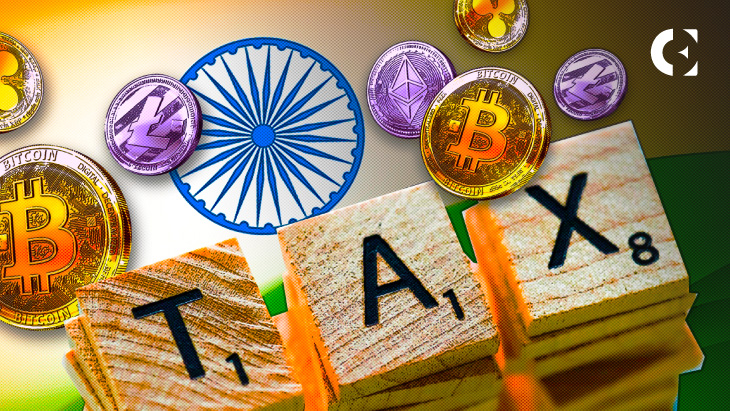- Indian Financial Act to charge a 30% tax on Virtual Digital Assets (VDAs) transfers.
- The new law will reflect in the crypto assets assessment beginning from 2023-2024.
- India’s new taxation law is linked to an individual’s residence and source of income.
The Indian government introduced a Financial Act that would charge a 30% flat rate on income from Virtual Digital Assets (VDAs) transfers in 2022. This new law will reflect in the crypto assets assessment beginning from the 2023-2024 fiscal year, implying that all transactions from April 1, 2022, are subject to the new law.
India’s new taxation law is linked to an individual’s residence and source of income. Therefore, for non-resident Indians (NRI), only income generated, or deemed to have been accrued from within the country, is subject to income tax.
By the design of the new law, Indians transacting on foreign exchanges are not liable for taxation within the country. According to the law, the reason is that the said income does not arise nor is received in the country.
The new regulation is not an absolute exemption for crypto practitioners from the tax laws in India.
According to Archit Gupta, founder, and CEO of a crypto taxation platform, the authorities will consider the residential status of NRIs when determining the taxability of their income.
Gupta added, “If an NRI becomes a tax resident for the year in question, the individual will be obligated to pay tax on the global income. That includes crypto gains made through platforms outside India.”
As contained in the new law, if a user withdraws the proceeds of a crypto transaction to an Indian bank, such withdrawals will be liable to a 30% tax, as it will be considered having arisen in India. Gupta noted that the authorities would mandate the beneficiary of such proceeds to file a “return of income.”
There still exists a lack of clarity on crypto tax payments among Indian practitioners, as various scenarios could play out. For instance, when an Indian buys crypto, moves overseas and becomes an NRI, the individual’s tax qualification becomes confusing. Under such circumstances, there are no clear guidelines on how to treat the investor.
Although the VDA income-tax regime in India has kicked in, some areas need to fine-tune. As events develop, there could be scenarios where the actualization of the process would require some degree of legal interpretation. That could be the case until the attainment of full maturity. Even that could take a few years to achieve.
Disclaimer: The information presented in this article is for informational and educational purposes only. The article does not constitute financial advice or advice of any kind. Coin Edition is not responsible for any losses incurred as a result of the utilization of content, products, or services mentioned. Readers are advised to exercise caution before taking any action related to the company.










